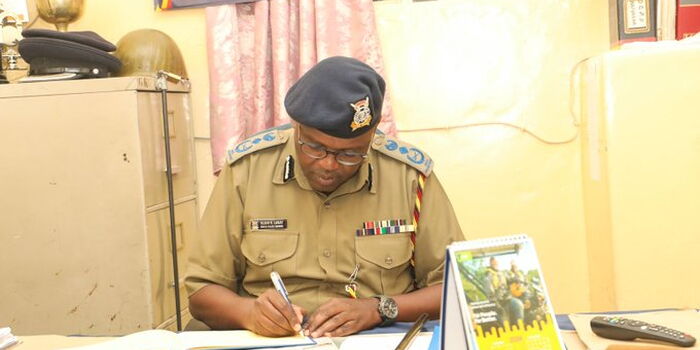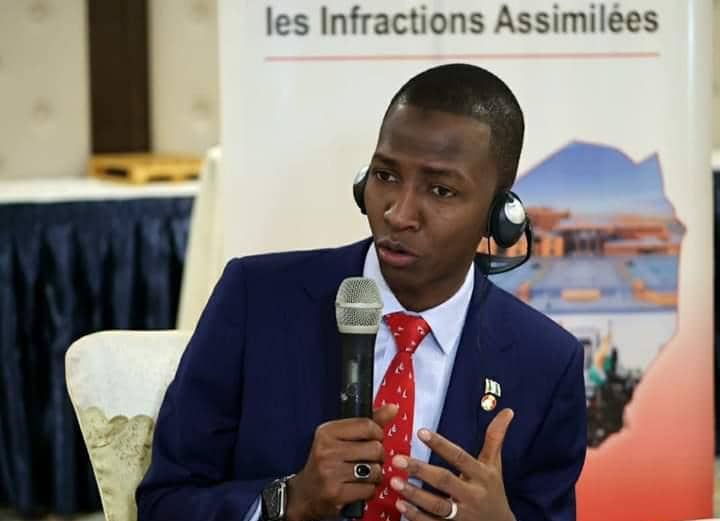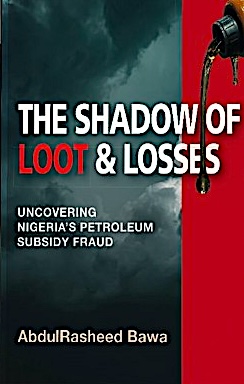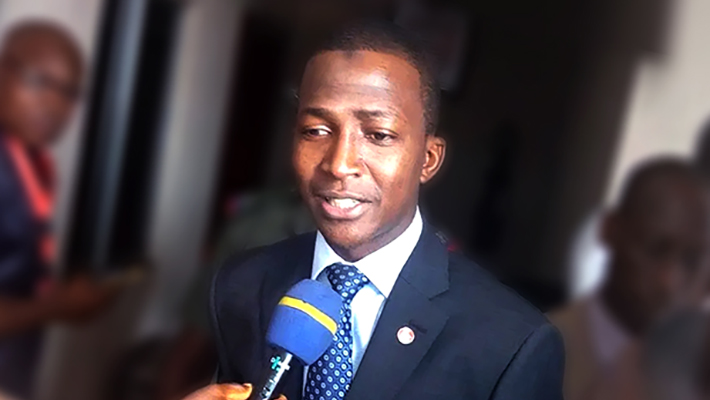THE SHADOW OF LOOT AND LOSSES - THISDAYLIVE

Abdulrasheed Bawa’s book vindicates the removal of petroleum subsidy, reckons IBRAHEEM MOUFTAH
President Bola Ahmed Tinubu was perceived to have made a blunder when, on his inauguration as President and Commander-in-Chief of the Armed Forces of the Federal Republic of Nigeria, he stated that the subsidy on petrol, had been removed. I was among those who viewed the president’s statement as hasty and ill-timed. But I was wrong. I acted in ignorance, not after reading the accounts of the subsidy regime fraud by a former chair of the Economic and Financial Crimes Commission (EFCC), Abdulrasheed Bawa, in his recently published book, “The Shadow of Loot and Losses: Uncovering Nigeria’s Petroleum Subsidy Fraud”
The book is an expository and a must-read. It revealed the insider deals in the Petroleum Support Fund (PSF) from 2006 to 2012. According to the author, he felt a strong urge to share a story defined by the pursuit of justice and the prevalence of fraud. And the content of the book didn’t deviate from the motivation. It gave insights into the petroleum industry and the history and causes of petroleum subsidy fraud in the country. He also highlighted the various ways these frauds were perpetuated by a network that consists of oil marketers, tank farm owners, bankers, vessel owners, civil servants within the petroleum industry and some highly placed individuals in the country. After reading, one would be glad that the subsidy regime had ended.
Among the listed manner these frauds were perpetuated by the actors, the one that struck my attention was “Bridging by air fraud”. He narrated that this was among the earliest forms of petroleum subsidy fraud that involved, largely, the reimbursement for transportation/freight of petroleum products from coastal (loading) depots to the inland (receiving depots), and the National Transportation Allowance through which diversion was carried out. “Oil marketing companies were to load their trucks using meter tickets and waybills. The waybills would be stamped by Petroleum Equalization Fund (PEF) officials at the point of dispatch from the loading end. They would also be stamped at the receiving end upon arrival at the inland depots to confirm their receipt.”
He said the fraud is perpetuated when some oil marketing companies would sell products at the coastal depots, and complete the documentation as though the trucks were loaded and dispatched at the inland depots. Meter tickets and waybills are thereafter obtained and flown to the receiving end to be processed and submitted to PEF as claims for reimbursement. This is quite interesting and indicates how insider dealings by the relevant government officials at the coastal and inland depots aid this fraud in return for kickbacks. Also, oil marketing companies were involved in substituting short distances between the loading depots and a filling station with longer distances to secure financial compensation.
For example, a claim would be presented that a truck delivered PMS to a retail station in Maiduguri, whereas the PMS was sold elsewhere or claims would be made for delivery to retail outlets that do not exist. In my opinion, as simple as this process might seem, it was an avenue where hundreds of millions were fraudulently obtained by the consortium of racketeers. The author made some honest submissions with regard to efforts by PEF to address the concern. But it was also breached. He said, “PEF invested billions of naira in the automation of the verification process through a software called Aquilla. Aquilla succeeded in eliminating both the bridging by air fraud and the diversion fraud to some extent. However, during the teething period of the deployment of the software, oil marketing companies found a way by which they removed the Aquilla tags from their trucks in order to perpetuate the bridging by air. Based on the foregoing, additional controls were put in place by which any tag removed from a truck would no longer be functional. Also, licenses, registration numbers and chassis numbers of oil trucks had to match whenever trucks were scanned at the loading and receiving ends. Despite all these, PEF struggled to achieve accurate oversight as smuggling and black-market sales persist.”
The PEF example should resonate in other sectors. It is an indication of a deliberate attempt at improving service delivery. There are fraudulent practices almost everywhere, and one of the ways to address these concerns is the deployment of technology, just like the case of the Aquilla software that helped a great deal in drastically reducing the bridging by air fraud. There are lessons to be gleaned from this example, and this much the author alluded to by highlighting the adoption of technology to modernize government operations and creating deterrents by promoting a legal environment that ensures swift investigations and prosecutions of wrongdoing, public perception of risk can shift. I like the creating deterrents angle from a psychological perspective. It can be further understood using the carrot and stick approach in discouraging undesirable actions.
The book “The Shadow of Loot and Losses: Uncovering Nigeria’s Petroleum Subsidy Fraud” should be a staple item for policymakers and implementers. It is a quasi-academic work with insights into the issues, examples and recommendations on ways forward. Worthy of note is his allusion that had the system been more efficient, and instances of fraud minimized, President Bola Ahmed Tinubu might not have deemed it necessary to eliminate the subsidy regime. He also argued that “retaining a well-managed subsidy programme could have provided much-needed relief to vulnerable populations by ensuring that the cost of living remains stable and providing a buffer against economic shocks.” However, as we all know, the subsidy is gone, and our focus now should be on improving domestic capacity for uninterrupted refining of crude oil.
There are positive steps in that direction with the sale of crude in naira to local refineries. The first step has been achieved, and the next step should be ensuring the availability of products to the refineries to ensure a seamless flow in the value chain. If this is done, we might as well perish the idea of importation of petroleum products into the country. I hope a major actor in the petroleum sector in the country would be led by the spirit to also give us a glimpse of the intricacies of the fuel subsidy regime. This insider perspective would indeed be a knowledge addition about a regime that is arguably the most fraudulent in our history.
Mouftah writes from Abuja, FCT












